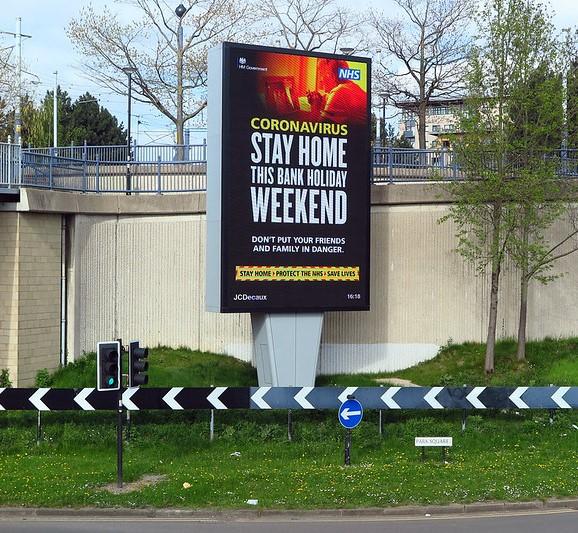With COVID-19 activity stabilizing and starting to decline in some of Europe's hot spots but picking up in some middle- and low-income nations, the head of the World Health Organization (WHO) warned against lifting restrictions too early while also noting that stay-at-home measures may not be practical for poor countries.
The global total moved closer to 2 million cases today, with 1,905,935 reported today from 185 countries, along with 118,623 deaths, according the Johns Hopkins online dashboard. The global total topped the 1 million mark only 11 days ago.
Tedros: 'The way down is much slower than the way up'
At a WHO media telebriefing today, Director-General Tedros Adhanom Ghebreyesus, PhD, said in some countries, COVID-19 cases are doubling every 3 or 4 days, and though it accelerates fast, it decelerates much more slowly. "In other words, the way down is much slower than the way up," he said. "That means control measures must be lifted slowly and with control. It cannot happen all at once."
As some countries, including those in Europe, mull how to ease restrictions, others are considering whether to introduce them, such as those in Africa, Asia, and Latin America. Tedros said that, in low-income countries, many people already live in overcrowded conditions, have access to few resources, and depend on daily work to eat.
For both high-income and low-income countries, physical distancing measures are only part of the equation and must be used alongside other steps, such as testing and contact tracing.
To help countries strategize how to lift the measures, the WHO, based on lessons learned about the virus so far, tomorrow will publish new guidance for lifting restrictions, Tedros said. The six key elements are that transmission is controlled; health systems can detect, test, isolate, treat, and trace every contact; the threat to special settings, such as hospitals and nursing homes, is minimal; preventive steps are taken in workplaces and other essential settings; imported case risks are managed; and communities are engaged and empowered.
In other WHO developments:
- Tedros again brushed off reports that US President Donald Trump's criticism of the WHO and that Trump is considering withholding US financial support to the WHO.
- The agency released a statement from an international group of scientists, doctors, funders, and manufacturers who have formed a collaboration, coordinated by the WHO, to help speed the availability of a vaccine. The experts applauded community interventions and said they will use the disease prevention window of opportunity to develop a vaccine as quickly as possible.
- Scientists from the WHO released a scientific brief about the potential use of Bacille Calmette-Guerin (BCG) vaccine, which says there's no evidence that it protects against COVID-19 but they will review evidence when it is available from two clinical trials. It said it does not recommend BCG vaccination for preventing COVID-19 infection.
- Tedros thanked the United Kingdom for its contribution of $200 million to the global COVID-19 response.
Spain, Iran take small steps to relax lockdowns
As cases stabilize and start to decline in some of the world's main hot spots, some countries are taking steps to relax some restrictions.
In Spain—the world's second hardest-hit country—the parliament is debating an extension of the country's lockdown but today allowed some businesses to reopen, including construction and manufacturing, Reuters reported today. Police in Madrid were handing out face masks at major transportation hubs.
In Iran, the Middle East's epicenter, where cases have stabilized and show signs of decline, the government yesterday lifted a ban on travel between cities within provinces, though a ban on movement between provinces remains in place, Reuters reported. Businesses classified as low risk, including shops and workshops, can now reopen in most of Iran, except for Tehran.
Turkey, Russia among nations stepping up measures
As pandemic activity accelerates in other parts of the world, governments are taking new steps. Turkey recently announced a 48-hour curfew for 31 of its 81 provinces. However, it gave citizens only a few hours' warning, which sent people streaming into stores to buy supplies and prompted the interior ministry to clarify that bakeries, hospitals, pharmacies, and medical suppliers were exempted, National Public Radio reported.
Turkey today reported 4,093 more cases, boosting its total to 61,049, which includes 1,296 deaths.
Russia today reported 2,558 new cases, a record daily high, and officials in Moscow—the country's hot spot—are issuing digital work permits to monitor people's movements, Agence France-Presse reported. The system begins on Apr 15; so far, 800,000 have been issued, though hackers have targeted the system.
Developments in Asia
Singapore reported 386 more cases today, up sharply from 233 reported yesterday. The health ministry said 292 are linked to known clusters or cases, many of which are linked to dormitories housing foreign workers. Health officials are moving healthy dorm residents to other locations, such as military camps and "floating hotels," Reuters reported.
Indonesian scientists in a study warned the government that allowing the mudik travel ritual, during which people return to their home villages after Ramadan, could fuel a surge in COVID-19 cases, Reuters reported. In a study from a separate group, experts said an outbreak could overwhelm the health system, even with strong efforts to curb the outbreak.
China today reported 108 new cases, 98 imported and 10 local, the National Health Commission said. Of the local cases, 7 are from Heilongjiang province on the border with Russia, where a small city is on lockdown. The 3 others are from Guangdong province, which has reported sporadic cases over the past few weeks.






















